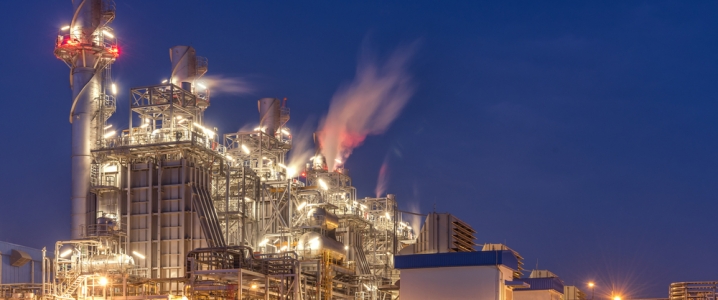Mexico is looking for ways to reduce its overwhelming dependency on U.S. natural gas imports, which currently satisfy over 50 percent of its demand. This is the highest foreign gas dependency rate in the world, according to a senior adviser to Mexico’s president Andres Manuel Lopez Obrador.
S&P Global Platts quotes Abel Hibert as saying that Mexico needed to diversify its sources of natural gas but also its entire energy supply as the overdependency on U.S. gas constitutes the “greatest strategic risk” for the country. That’s especially true in light of the fact that Mexico uses natural gas for over 60 percent of its power generation: a much higher portion than other gas import-dependent countries in the world.
One way that Pemex is already pursuing of reducing Mexico’s dependence on imported gas is through expansion of domestic production. The company plans to increase this to 5.7 billion cubic feet daily by 2024. This, however, will not be enough to solve the problem because gas demand will also grow, at a faster clip: by 2024 the Mexican energy ministry has forecast it will reach 8.7 billion cu ft daily.
The U.S. Energy Information Administration last year projected a substantial increase in U.S. exports to the south. Last year, these were between 4 and 5 billion cu ft daily, hitting the highest on record in August, at 5.1 billion cubic feet daily, according to EIA data. This rate of exports, by the way, makes Mexico the single largest market for U.S. pipeline gas exports, which the EIA last year projected will average 7 billion cu ft daily, rising to 8.5 billion cu ft daily this year, not least thanks to growing Mexico demand.
Mexico needs more geothermal and hydropower, Hibert said, as a means of supply diversification, and it needs financial help from the private sector. Pemex and state utility CFE cannot foot the bill for this diversification alone, the adviser said, adding proposals are being explored at the moment for joint action on energy security. Related: EIA Inventory Report Pushes Oil Prices Lower
Renewables excluding hydropower would also make sense as part of a diversification away from imported gas. However, the renewables industry in the country received a blow last December when the government canceled a renewables auction, citing administrative changes resulting from the change in government. That was to be the fourth long-term renewable power generation auction in Mexico, the previous three resulting in 6 GW of projects being awarded. Now, according to Obrador’s adviser, the government is evaluating the benefits of these long-term renewable energy auctions.
Meanwhile, Obrador seems to have gone back on a promise he made on the campaign trail: this week Pemex got the green light to start fracking eight exploration wells. Bloomberg quoted a former senior official from the energy ministry as saying “It is difficult to understand any way of lessening the dependency on American gas without allowing fracking. For Mexico’s industrial sector, natural gas is really important in keeping up competitiveness for manufacturing.”
The move indicates that Obrador, who had promised he would not allow fracking in Mexico, has become aware of the realities of the energy industry and the ways in which Mexico can reduce its dependence on U.S. gas imports. In the end, it is all about priorities, and if reducing an overwhelming dependence on imports is the more important priority, then all means of doing it would need to be considered, including fracking.
By Irina Slav for Oilprice.com
More Top Reads From Oilprice.com:
- How Sanctions Are Helping The U.S. Become A Net Oil Exporter
- Permian Production To Break 4 Million Bpd In March
- A Worrying Trend For International Oil Giants


















